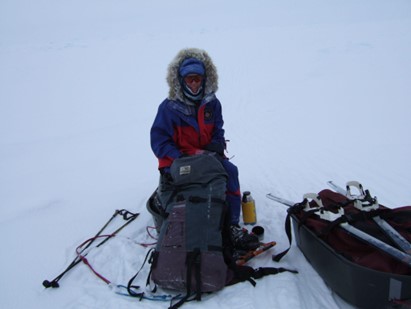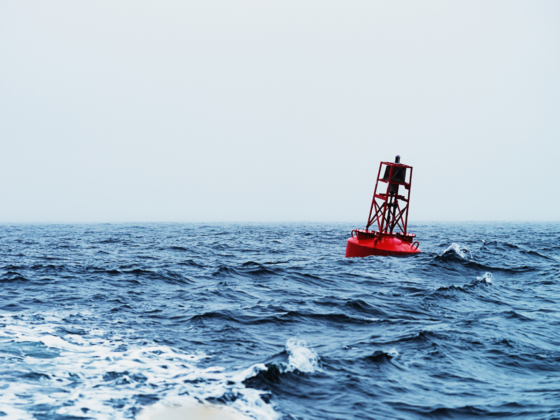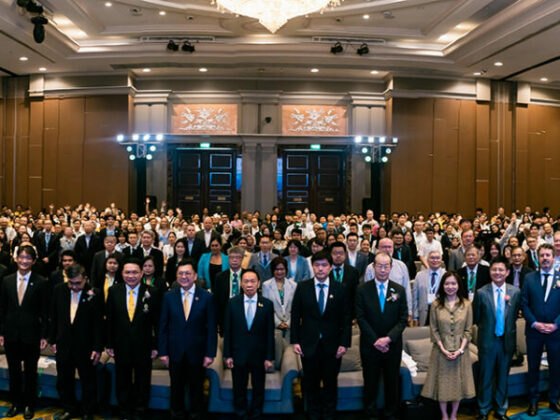Marine pollution, which largely originates from land-based sources, poses a significant threat to ocean ecosystems and human health. As part of the Ocean Decade, Challenge 1: Understand and Beat Marine Pollution calls for collective efforts to understand the complexities of this issue and to implement practical solutions. In order to identify the priorities for the Ocean Decade in relation to marine pollution, a dedicated expert Working Group has been established within the Vision 2030 process.
Currently, our understanding and knowledge of marine pollution sources and impacts are limited, mainly focused on a restricted range of pollutants in coastal areas of the Global North. Ocean Decade Challenge 1: Understand and Beat Marine Pollution seeks an extensive understanding of both land- and sea-based sources of pollutants and contaminants, addressing marine debris, plastic, underwater noise, hazardous chemicals, and more, in global water bodies. The ultimate goal is to achieve a cleaner and healthier ocean by identifying, reducing, and mitigating pollution sources, thus safeguarding ecosystem functions and services.
As part of the Vision 2030 process launched by the UN Decade of Ocean Science for Sustainable Development 2021-2030 (‘Ocean Decade’), Working Group 1 leads the effort in tackling Ocean Decade Challenge 1. It is led by two expert co-chairs, Dr Vanessa Hatje, Professor in chemical oceanography at the Federal University of Bahia, Brazil, and Dr Rosemary Rayfuse, Emerita Scientia Professor in International Law at UNSW Sydney, Australia. Both Dr Rayfuse and Dr Hatje are members of GESAMP, the Joint Group of Experts on the Scientific Aspects of Marine Environmental Protection, which is co-sponsored by UNESCO’s Intergovernmental Oceanographic Commission, the coordinating agency of the Ocean Decade.


The collective expertise of Working Group 1, spanning marine scientists, ecologists, policymakers, and community leaders, provides an enabling framework to gather essential information on various pollution types (e.g., metals, radionuclides, plastics, excess nutrients, etc.), sources, spatial distribution, impacts on ecosystems and human health, with the aim of identifying priority areas of research and potential innovative solutions.
Through trans- and interdisciplinary collaborative work, the members of the Working Group will craft a white paper outlining the current state of the pollution challenge, identify knowledge gaps as well as capacity building, infrastructure and resource mobilization needs, and propose actionable steps as part of the Ocean Decade to better understand the life cycle of pollutants, their long-term impacts, and the effectiveness of regulatory measures and strategies aimed at their minimization and mitigation. Progress and effectiveness in addressing marine pollution will be measured through relevant indicators.
“Addressing the current knowledge gaps is crucial for a comprehensive understanding of marine pollution and its cumulative, long-lasting impacts on ecosystems,” explains Vanessa Hatje. “It requires concerted efforts to improve data availability, harmonized methodologies, and the establishment of representative sites across the globe to prioritize long-term monitoring sites in diverse marine environments and geographic regions, similar to what we have for atmospheric CO2 measurements.”
Achieving these objectives requires the generation of data on different aspects involving the cycling of pollutants, the establishment of harmonized procedures and quality controls, the development of robust infrastructure, the fostering of partnerships, and the enhancement of capacity development through strategic collaborations, training, and technological innovations. Above all, success depends on coordinated efforts from governments, industries, scientists, and communities worldwide.
The adoption of this holistic approach to understanding pollution across the land-ocean continuum and its impact on ecosystems and human health is crucial for the development of effective legal and policy responses, including the future conceptualization of new international treaties to regulate and facilitate the better management of potential pollutants.
On this topic, Working Group co-chair Rosemary Rayfuse underscores that although the Law of the Sea Convention places the issue of marine pollution on the high-level agenda, bridging the gap between policy and concrete actions remains a significant challenge. “This transition can only be achieved through the acquisition and application of comprehensive scientific knowledge and global cooperation. Our Working Group 1 aims to identify the mechanisms by which these goals can be achieved.”
In the first phase of the Vision 2030 process, the co-chairs circulated a questionnaire among the Working Group members and their networks to identify, from a user perspective, a set of strategic ambitions to address the most pressing gaps in science, knowledge, and solutions needed to achieve a clean ocean by 2030. Consultations led to the compilation of an extensive long list of potential priorities. At present, the co-chairs are working on a refined ‘short list’ of priorities that will serve as the foundation for the white paper.
Get involved in the Ocean Decade transformative journey to 2030!
Review of the draft white papers developed by the Working Groups will be launched in early 2024. Your insights, feedback, and expertise will contribute to shaping the strategic ambitions and determine the milestones for each Challenge, ensuring a diverse and inclusive approach. More information will be available soon on the Ocean Decade website.
The final draft versions will be presented and debated during thematic ‘Science Solution Forums’ at the 2024 Ocean Decade Conference in Barcelona, a pivotal event for the Vision 2030 process.
Engage in the Vision 2030 process and join us in Barcelona to build the Ocean Decade roadmap to 2030 for the ocean we want: pre-register here!
Click here to meet Working Group 1 and find out more about the Vision 2030 process.
For more information, please contact:
Vision 2030 Team (vision2030@unesco.org)
***
About the Ocean Decade:
Proclaimed in 2017 by the United Nations General Assembly, the UN Decade of Ocean Science for Sustainable Development (2021-2030) (‘the Ocean Decade’) seeks to stimulate ocean science and knowledge generation to reverse the decline of the state of the ocean system and catalyse new opportunities for sustainable development of this massive marine ecosystem. The vision of the Ocean Decade is ‘the science we need for the ocean we want’. The Ocean Decade provides a convening framework for scientists and stakeholders from diverse sectors to develop the scientific knowledge and the partnerships needed to accelerate and harness advances in ocean science to achieve a better understanding of the ocean system, and deliver science-based solutions to achieve the 2030 Agenda. The UN General Assembly mandated UNESCO’s Intergovernmental Oceanographic Commission (IOC) to coordinate the preparations and implementation of the Decade.
About the IOC/UNESCO:
The Intergovernmental Oceanographic Commission of UNESCO (IOC/UNESCO) promotes international cooperation in marine sciences to improve management of the ocean, coasts and marine resources. The IOC enables its 150 Member States to work together by coordinating programmes in capacity development, ocean observations and services, ocean science and tsunami warning. The work of the IOC contributes to the mission of UNESCO to promote the advancement of science and its applications to develop knowledge and capacity, key to economic and social progress, the basis of peace and sustainable development.


